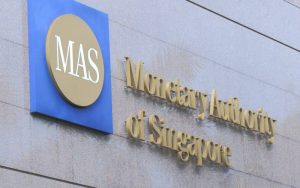“Fairness Metrics” to Aid Responsible AI Adoption in Financial Services
The Monetary Authority of Singapore (MAS) announced today that the first phase of the Veritas initiative – a framework for financial institutions to promote the responsible adoption of Artificial Intelligence and Data Analytics (AIDA) – will commence with the development of fairness metrics in credit risk scoring and customer marketing. These metrics will help financial institutions validate the fairness of their AIDA solutions in the two use cases.

MAS co-created ‘fairness metrics’ to strengthen internal governance around responsible AI adoption in financial services
Table of Contents
In Nov 2019, MAS announced that it is working with financial industry partners to create a framework for financial institutions to promote the responsible adoption of Artificial Intelligence and Data Analytics (AIDA). This framework, known as Veritas, will enable financial institutions to evaluate their AIDA-driven solutions against the principles of fairness, ethics, accountability and transparency (FEAT) that MAS co-created with the financial industry last year to strengthen internal governance around the application of AI and the management and use of data. Proper governance around the use of AIDA is critical to fostering trust and confidence in AIDA-driven decisions and financial services.
The Veritas framework was highlighted by Mr Heng Swee Keat, Deputy Prime Minister of Singapore, in his speech laying out Singapore’s National AI Strategy at the Singapore FinTech Festival and Singapore Week of Innovation and TeCHnology (SFF x SWITCH) 2019.
Veritas aims to provide financial institutions with a verifiable way to incorporate the FEAT principles into their AIDA solutions. It will comprise open source tools that can be applied to different business lines, such as retail banking and corporate finance, and in different markets. For a start, Veritas will focus on use cases in three areas: customer marketing, risk scoring, and fraud detection. The FEAT principles and Veritas are part of Singapore’s National AI Strategy, and help to build a progressive and trusted environment for AI adoption within the financial sector.
The Veritas consortium is currently made up of 17 members, comprising MAS, SGInnovate, EY and 14 financial institutions. The consortium will produce a report on its findings and conclusions in the second half of 2020. MAS welcomes other interested organisations to participate in the consortium.
More use cases will be identified in subsequent phases of this initiative to promote responsible AI adoption in financial services.
Credit risk scoring to assess the credit worthiness of borrowers is a critical function of the financial services industry and impacts most customers of financial institutions. Given the large amount of customer data to analyse, financial institutions are increasingly employing AI tools for this purpose. It is crucial that AI-driven decisions do not systematically disadvantage any particular individuals or groups when determining the credit risk scoring.
Customer marketing is another area with significant potential for AI adoption. As marketing processes become increasingly digitalised and automated, there is increasing scope to use AI tools to analyse customer data and match products or services to customers. Hence, it is important that such AI solutions recommend the right product to the right customer at the right time.
Two core teams within the Veritas consortium will be taking on the development of the fairness metrics:
- UOB and Element AI will develop the metrics on credit risk scoring
- HSBC, IAG Firemark Labs and Gradient Institute will develop the metrics on customer marketing.
The consortium will publish a white paper documenting the metrics and release an open-source code to enable financial institutions to adopt the fairness metrics for responsible AI adoption in these two areas by the end of this year.
Financial institutions can integrate the open-source code into their own IT environment to validate the fairness of their AI solutions. The open-source code will also be deployed as a service on the APIX platform. APIX is a global, open-architecture platform that supports financial innovation and inclusion in ASEAN and around the world. This will allow financial institutions and FinTechs to have access to the service and technology providers on the platform who are able to validate their AI solutions.
Since the announcement of the project to create framework for responsible AI adoption in financial services in November 2019, 8 new members have joined the Veritas consortium. This brings the current membership to 25 members.
Mr Sopnendu Mohanty, Chief FinTech Officer, MAS, said, “The responsible use of AI is a prerequisite for the greater adoption of AI in the financial sector. Veritas is the first industry-wide collaboration to provide a mathematical way to validate AIDA solutions against the principles of Fairness, Ethics, Accountability and Transparency. We hope Veritas will speed up the adoption of AI in financial services in the right direction.”
Mr Paul Ho, chief mortgage officer at iCompareLoan, said, “technology is fast disrupting the financial sector and AI adoption is quickening in pace. The covid-19 crisis will only accelerate the disruption and adoption. In such a climate ‘fair metrics’ is especially useful to promote responsible AI adoption.”
He added, “as most financial institution services have moved online, we too have started meeting our clients remotely. In this extended Circuit Breaker period, people are still buying and selling properties, and they can get the best home loans only when they work with trusted mortgage brokers.”
On 21 April 2020, the Multi-Ministry Taskforce announced that it would extend the circuit breaker period until 1 Jun 2020 (inclusive), and put in place enhanced circuit breaker measures minimally for a two-week period from 21 April 2020 until 4 May 2020 (inclusive).






